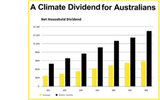- Joined
- 3 July 2009
- Posts
- 28,097
- Reactions
- 25,302
Ford Europe, to join the list of manufacturers changing to BEV's by 2030.

 www.irishtimes.com
From the article:
www.irishtimes.com
From the article:
Ford will stop selling cars in Europe and the UK with any form of internal combustion engine by 2030, in the most ambitious regional electrification target of any big manufacturer.
Every passenger car model will have an electric or plug-in hybrid option by 2026, but the company will go 100 per cent electric by the end of the decade, the US carmaker announced on Wednesday.
“We expect the majority of the vehicles will already be battery electric by 2026,” Ford’s European president Stuart Rowleysaid.
Volvo Cars, which is smaller than Ford, expects to be fully electric globally by 2030, while General Motors, which pulled out of Europe in 2017, plans to have all its passenger cars emission-free by 2035.
Ford’s commercial vehicles, which include the Transit van and the Ranger pick-up truck, will have electric and hybrid options on every model by 2024, but do not yet have a final phaseout date for traditional engine sales.

Ford to sell only electric cars in Europe and UK by 2030
Group is largest carmaker to pledge all-electric sales on continent by end of decade
Ford will stop selling cars in Europe and the UK with any form of internal combustion engine by 2030, in the most ambitious regional electrification target of any big manufacturer.
Every passenger car model will have an electric or plug-in hybrid option by 2026, but the company will go 100 per cent electric by the end of the decade, the US carmaker announced on Wednesday.
“We expect the majority of the vehicles will already be battery electric by 2026,” Ford’s European president Stuart Rowleysaid.
Options
Ford is investing $22 billion (€18 billion) in electric technology by 2025 globally, and the announcement makes the group the largest carmaker so far to pledge all-electric sales by 2030 in the European region.Volvo Cars, which is smaller than Ford, expects to be fully electric globally by 2030, while General Motors, which pulled out of Europe in 2017, plans to have all its passenger cars emission-free by 2035.
Ford’s commercial vehicles, which include the Transit van and the Ranger pick-up truck, will have electric and hybrid options on every model by 2024, but do not yet have a final phaseout date for traditional engine sales.




